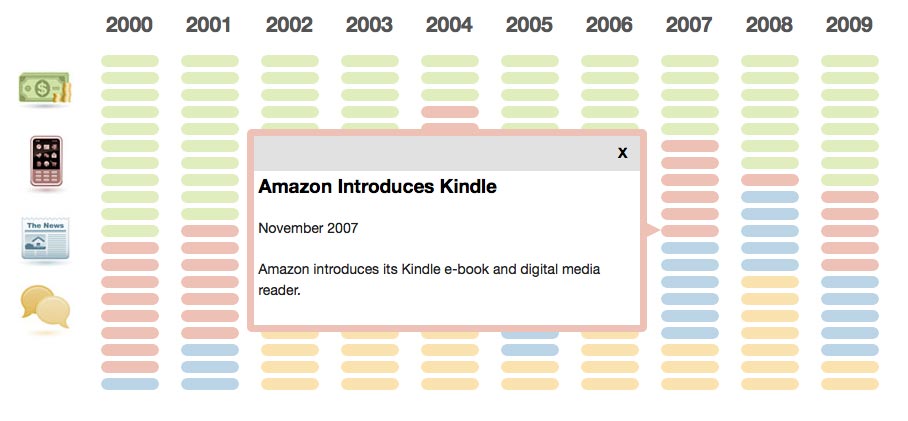Poynter has created a great interactive graphic of 200 moments that transformed journalism between 2000 and 2009, as selected by library director David Shedden. Those selected include: the Twitter picture of the plane landing in the Hudson River in 2009; the launch of Amazon’s Kindle in 2007; and the BBC’s crowdsourcing of material from Iraq in 2003. The site is also asking readers to challenge its selection and suggest their own moments.
Full introduction at this link…
